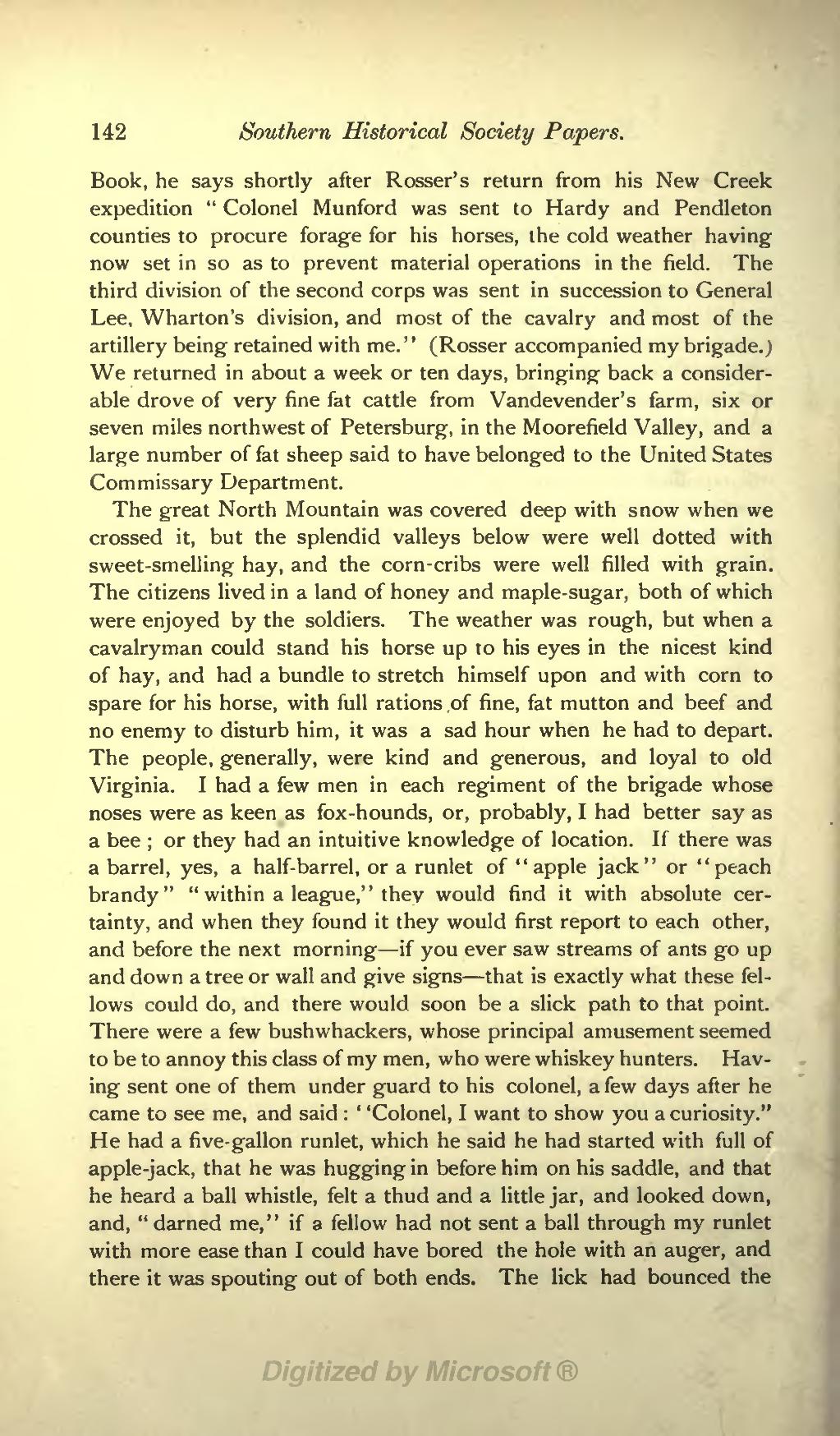142 Southern Historical Society Papers.
Book, he says shortly after Rosser's return from his New Creek expedition " Colonel Munford was sent to Hardy and Pendleton counties to procure forage for his horses, the cold weather having now set in so as to prevent material operations in the field. The third division of the second corps was sent in succession to General Lee, Wharton's division, and most of the cavalry and most of the artillery being retained with me." (Rosser accompanied my brigade.) We returned in about a week or ten days, bringing back a consider- able drove of very fine fat cattle from Vandevender's farm, six or seven miles northwest of Petersburg, in the Moorefield Valley, and a large number of fat sheep said to have belonged to the United States Commissary Department.
The great North Mountain was covered deep with snow when we crossed it, but the splendid valleys below were well dotted with sweet-smelling hay, and the corn-cribs were well filled with grain. The citizens lived in a land of honey and maple-sugar, both of which were enjoyed by the soldiers. The weather was rough, but when a cavalryman could stand his horse up to his eyes in the nicest kind of hay, and had a bundle to stretch himself upon and with corn to spare for his horse, with full rations, of fine, fat mutton and beef and no enemy to disturb him, it was a sad hour when he had to depart. The people, generally, were kind and generous, and loyal to old Virginia. I had a few men in each regiment of the brigade whose noses were as keen as fox-hounds, or, probably, I had better say as a bee ; or they had an intuitive knowledge of location. If there was a barrel, yes, a half- barrel, or a runlet of "apple jack" or "peach brandy" " within a league," they would find it with absolute cer- tainty, and when they found it they would first report to each other, and before the next morning if you ever saw streams of ants go up and down a tree or wall and give signs that is exactly what these fel- lows could do, and there would soon be a slick path to that point. There were a few bushwhackers, whose principal amusement seemed to be to annoy this class of my men, who were whiskey hunters. Hav- ing sent one of them under guard to his colonel, a few days after he came to see me, and said : ' 'Colonel, I want to show you a curiosity." He had a five-gallon runlet, which he said he had started with full of apple-jack, that he was hugging in before him on his saddle, and that he heard a ball whistle, felt a thud and a little jar, and looked down, and, " darned me," if a fellow had not sent a ball through my runlet with more ease than I could have bored the hole with an auger, and there it was spouting out of both ends. The lick had bounced the

